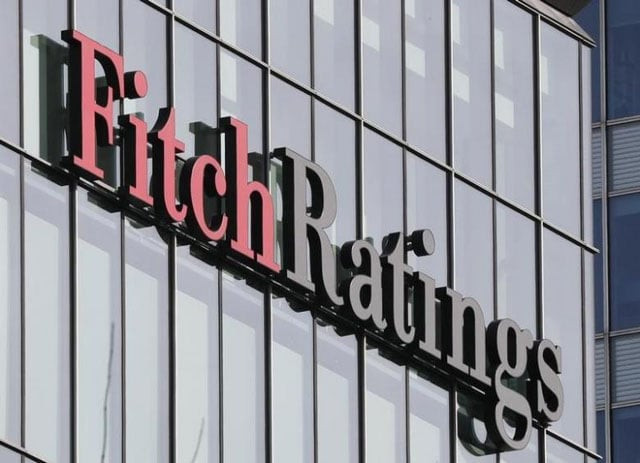Fitch sees Pakistan’s economy growing by 4.2% this fiscal
Keeps in view govt, private sector’s determination to ramp up spending

Fitch Solutions has projected Pakistan’s economy would grow by 4.2% in the current fiscal year 2021-22 (July-June), considering that the government and the private sector are determined to ramp up spending and overseas Pakistanis would maintain sending strong workers' remittances during the year.
The growth would be supported by significant improvement in business confidence, accommodative monetary (low interest rate) and fiscal (high public spending) policies, reduced number of Covid-19 cases in the country, the government strategy to control the pandemic through smart lockdown instead of a nationwide one, increased drive to vaccinate the nation and subsidised loan for setting up new factories and expending the existing one through the central bank initiative of Temporary Economic Refinance Facility (TERF).
The growth projection by the global research firm is, however, notably low compared to the government set target for 4.8% in the current year. The gross domestic product (GDP) grew 3.9% in the previous fiscal year 2019-20.
The UK-based research firm added that imports would rebound strongly and outpace export growth.
Accordantly, "net exports will contribute negatively to headline (inflation) growth as import growth is set to outpace export growth”, Fitch Solutions said in a report titled 'Pakistan Economic Recovery to Continue in FY2021-22'.
READ New ordinance for non-filers, under-filers: Shaukat Tarin
"With the government likely to continue with its 'smart-lockdown' strategy instead of imposing a nationwide lockdown, we do not expect Pakistan’s growth trajectory to be severely curtailed.
Additionally, the pickup in the vaccination rate in recent months will likely reduce the possibility of extended lockdowns in the future."
"We also expect the economy to be buoyed by accommodative monetary and fiscal stances; public spending. A more assured economic outlook will bode well for consumption and investments, bolstering economic growth," the UK-based research firm said.
Fitch has revised its forecast for private consumption to grow by 3.6% in FY22 compared to 3.4% previously. "Indeed, the country’s consumer confidence rose in July, coming in at 44.1, its highest reading since September 2019 (pre-pandemic levels). As a sign of recovering demand, purchases of major items like passenger vehicle sales have surpassed pre-pandemic levels. Additionally, our expectation for still strong remittance growth amid a stronger economic growth outlook in the Gulf Cooperation Council (GCC) economies and the European Union will also support private consumption.
"We have also revised up our forecast for gross fixed capital formation (GFCF/investment) growth to 8% in FY22 from 7.2% previously."
READ FBR warns OMCs of fine, imprisonment
GFCF (investment) will be driven by improving domestic and external demand outlooks alongside supportive monetary and fiscal conditions. The country’s business confidence survey by the State Bank of Pakistan (SBP) recorded its highest-ever levels in June (latest data available) since its inception, reflecting optimism surrounding the business outlook of Pakistan, it said.
Accommodative monetary policy, coupled with disbursements from the SBP’s TERF will further serve as tailwinds for capacity enhancing investments. According to the SBP estimates, the TERF loan disbursements is expected to increase by 67% this fiscal year. The TERF is a concessionary refinance facility that aims to stimulate capital investment, providing a maximum loan amount of Rs5 billion per project at a cost of 4% per annum, it added.
Increased development spending by the government will be another catalyst for growth in this component. According to Pakistan’s FY22 fiscal budget, allocations to the Public Sector Development Programme surged by 61.3% compared with the budgeted amount in the previous fiscal year, coming in at Rs2.1 trillion.
These include infrastructure projects such as the construction of the Diamer-Bhasha Dam, the Hyderabad-Sukkur motorway and the upgrade of Pakistan Railways existing Main Line-1, among others.



















COMMENTS
Comments are moderated and generally will be posted if they are on-topic and not abusive.
For more information, please see our Comments FAQ